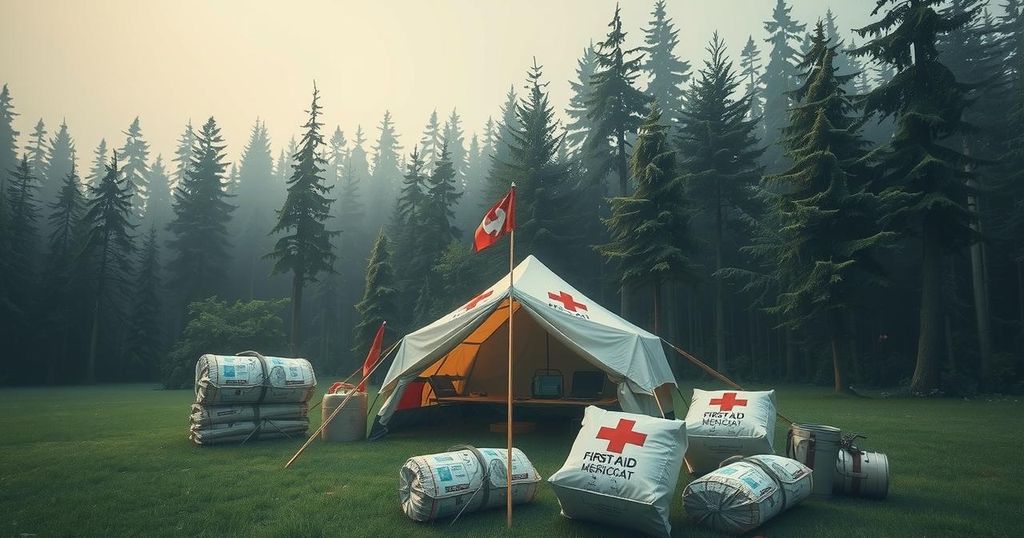Intensified fighting in Lubero territory, DRC, has triggered a third wave of displacement, affecting over 290,000 individuals. MSF is intervening to support health services and aid displaced populations, reflecting urgent humanitarian needs amidst ongoing violence and community resilience.
The Lubero territory in eastern Democratic Republic of Congo (DRC) has faced heightened violence as fighting between Congolese forces and the M23 armed group intensifies, resulting in significant civilian displacement. Doctors Without Borders/Médecins Sans Frontières (MSF) has initiated emergency responses to assist both displaced populations and local communities in this area. Virginie Napolitano, MSF’s emergency project coordinator, outlines the challenges and MSF’s interventions in this escalating crisis.
In the Grand Nord region of North Kivu province, the ceasefire declared on July 31, 2024, was short-lived, leading to renewed hostilities in December. The M23 group, allegedly backed by Rwanda, has made territorial gains, compelling over 290,000 individuals to flee their homes, predominantly affecting the Lubero-Centre and Kipese areas. Civilians bear the brunt of these conflicts, being forced to abandon their belongings amidst intense shelling from both armed groups and military forces.
Host communities have demonstrated remarkable solidarity by providing shelter to displaced individuals, yet they are grappling with rising prices and disrupted supply chains caused by ongoing conflicts. Many displaced individuals are in desperate need of essential supplies such as food, blankets, and sanitary products, as well as adequate shelter in urban areas that lack formal displacement camps. Vulnerable groups, particularly women and children, face hardships, with men often remaining behind to manage property and seek employment.
MSF’s response includes enhancing access to primary health care across two health centers, along with supporting nutritional programs for malnutrition treatment in Lubero. Additionally, MSF is working to ensure routine vaccinations to prevent epidemics, primarily measles. Although some health facilities have closed due to proximity to conflict, MSF is addressing wounded patients and bolstering sanitization efforts to combat sexual violence, a growing concern amidst the crisis.
As the humanitarian situation in Lubero escalates, MSF continues to adapt its interventions to provide vital aid and restore health services amidst the ongoing violence. By collaborating with local health authorities and focusing on critical needs, MSF aims to alleviate suffering and support both displaced populations and host communities in this challenging environment.
The Democratic Republic of the Congo has a long history of conflict, with various armed groups, including M23, causing extensive humanitarian crises. The Grand Nord area of North Kivu has recently seen waves of violent clashes that have resulted in mass displacements and increased needs for humanitarian assistance amidst a backdrop of economic instability. MSF has been active in the region, responding to the health and humanitarian needs of affected populations, especially in areas lacking infrastructure to support internally displaced persons.
The ongoing conflict in Lubero territory continues to displace thousands, exacerbating the humanitarian crisis in eastern DRC. MSF’s timely interventions aim to address the immediate health needs and provide essential supplies to both displaced individuals and local host families. As conditions worsen, the role of organizations like MSF becomes increasingly vital in delivering relief and restoring access to necessary services amidst turmoil.
Original Source: reliefweb.int







